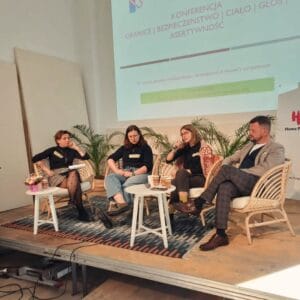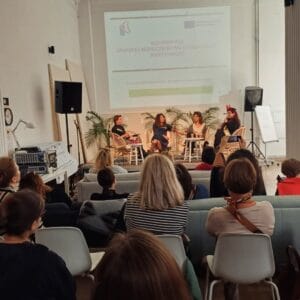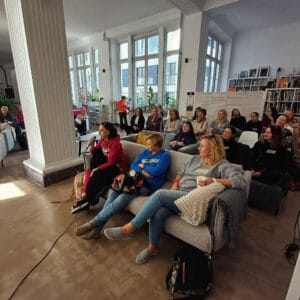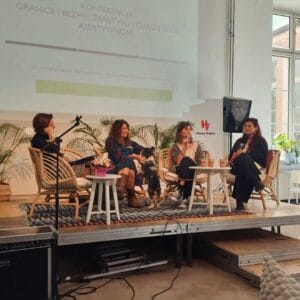Why was this meeting important?
The conference dedicated to safety, gender equality, and assertiveness was much more than an educational event. It was a response to real social challenges. WHO research shows that 1 in 3 women worldwide has experienced physical or sexual violence. This is both a personal tragedy and a signal that change is urgently needed – in culture, education, and everyday relationships.
That’s why bringing together experts and practitioners held such value. The event combined psychological theory with hands-on workshops, showing how to create safe spaces and support both ourselves and others in strengthening boundaries.
Assertiveness – a tool of empowerment
The conference demonstrated that assertiveness is more than a communication technique. It is a tool of emancipation, a way to build equality, and a daily practice of care for oneself and others. Panel discussions and workshops highlighted how the body, voice, and relationships based on allyship can become three pillars of safety and agency.
The workshops were the heart of the event. Breathing exercises, working with emotions, learning to recognize signals from the body, and even making music together all showed that strength and safety can be nurtured through simple, accessible practices.
Boundaries that do not divide
As Grzegorz Sylwester Kornet emphasized, boundaries should not be treated as walls but as a message: “I’m OK and you’re OK.” An assertive “no” does not shut others out – it affirms one’s own values. Boundaries do not divide; they protect and enable healthy relationships.
Allyship in practice
Experts reminded participants that allyship is not a declaration but an ongoing process. Dr. Kasia Zabratańska pointed out that building fairer relationships requires courage and consistency – equality cannot be reduced to empty words.
Community as strength
Participants stressed that the greatest value of the conference was community and the space to experiment. “Meeting open-minded people had enormous power,” said Ania Kaszuba. Jolanta Sienkiewicz-Prochowicz added that the combination of theory and practice, the diversity of voices, and the empowering workshops created an experience that will stay with participants for a long time.
Key educational takeaways
- Assertiveness can be developed – it is not a gift for the few, but a skill that can be practiced step by step.
- Boundaries are the foundation of healthy relationships – they protect well-being and clearly communicate needs.
- Allyship requires action – courage, consistency, and practice in daily choices.
- Safety begins with awareness – only by recognizing and naming our own needs can we create spaces of respect and dignity.
Conclusion
The conference showed that education in assertiveness and boundaries is not a luxury, but a necessity in a world where violence and inequality are still present. The most important lesson was simple yet profound:
- Boundaries do not divide – they protect and allow us to grow.
- Assertiveness is not conflict, but care – for ourselves, for others, and for relationships built on equality and mutual respect.





